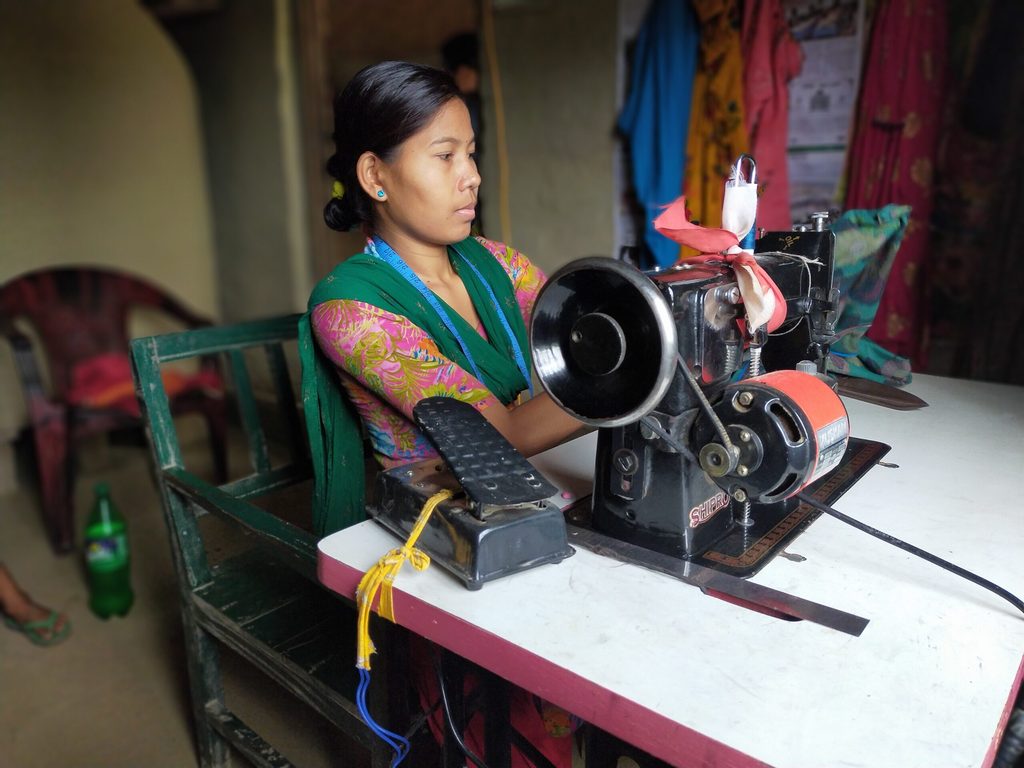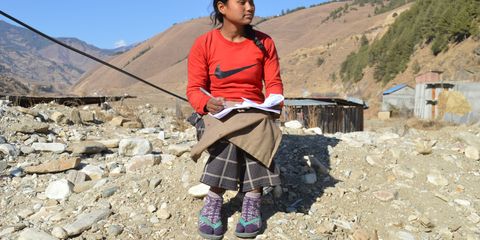Menstrual hygiene support for girl with disability during COVID-19 lockdown
The COVID-19 lockdowns prevented girls and young women like Sita from being able to properly manage their periods. In response, Plan International Nepal provided sanitary kits to support girls' menstrual hygiene.

Girls with disabilities face inequalities and exclusions because of their disability and their gender.
At Plan International Nepal, we’re ensuring every child completes a quality, inclusive education and has access to menstrual hygiene products even during emergencies without discrimination or exclusion.
On International Day of People with Disability 2022, we are celebrating the amazing stories of girls living with disabilities.
Growing up with a disability in a small village in the western region of Nepal, 26-year-old Sita’s access to education was restricted and she spent most of her time at home with her parents and 4 siblings. Without a formal education, she was taught how to sew by her mother and now makes and repairs clothes for people in her village. This gives her some independence and allows her to contribute to her family’s finances.
COVID-19 lockdown impacts menstrual health
Like many families in Nepal, the lockdown restrictions imposed by the COVID-19 pandemic had a serious impact on their lives. “My family’s financial situation is poor. The prohibitory order imposed by Nepal Government locked down the production on our farm. It pushed my father and elder brother into manual labour work to earn a living,” Sita explains.
Sita’s sewing work also completely stopped, making it even even harder for the family to survive. “It was difficult for us to afford to pay for hygiene materials like hand sanitiser that would protect us from the virus. I also faced difficulties managing my menstruation.”
I am glad that we now have enough sanitary pads and hygiene materials for 2-3 months.
Sita, 26.
Like Sita, many girls have been unable to access sanitary pads during the pandemic. In Nepal, where menstrual stigma is already a major concern, the pandemic and lockdown have exacerbated period poverty and worsened conditions for many young women.
Not only are many women and adolescent girls now facing additional financial barriers under lockdown to maintain safe and hygienic menstrual hygiene, but now that many have to stay in their households, they are also having to deal with heightened effects of the cultural stigma.
Sanitary kits help girls manage periods
To support girls like Sita, Plan International Nepal and its partner organisation Banke UNESCO Club, distributed sanitary kits to 315 households in Bardiya district. Each kit contains soap for bathing, washing clothes and dishes, shampoo, sanitary pads, digital thermometer, underwear, a torch, sanitiser, face mask and information about COVID-19.
Sita recalls her delight at receiving her kit. “I am glad that we now have enough sanitary pads and hygiene materials for 2-3 months. We do not have to use old rags during our periods anymore.”
With the lockdown restrictions now starting to ease, Sita hopes to soon be able to travel to the market in the nearby town to get her wheelchair repaired.
“We do not have access to public transport in my village so it’s hard for me to get to the nearby market for daily necessities. I need my wheelchair so I can get involved in some of the income generation capacity development programmes.”
Categories: Sexual and reproductive health and rights


